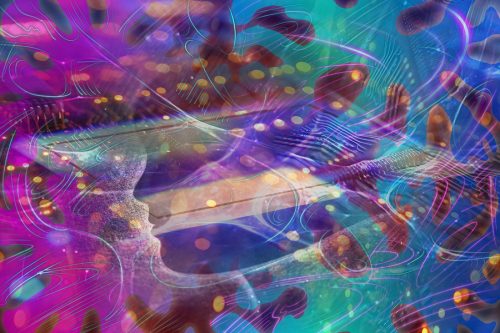Bernhard Scholkopf and Stefan Bauer from Max Planck Institute for Intelligent Systems; Francesco Locatello and Nal Kalchbrenner as Google researchers; Yoshua Bengio, Nan Rosemary Ke, and Anirudh Goyal from Montreal Institute for Learning Algorithms (Mila) came together for research.
The research paper titled “Towards Causal Representation Learning” provides the way through which the artificial intelligent systems can learn causal representations and how the absence of the same in machine learning algorithms and models is giving rise to challenges in front of us.
Let’s look at the causal relations between different elements while observing the girl on the horse trying to jump over a barrier. We can clearly observe that the girl, the horse, and the motion of their bodies are in unison. The girl is pulling the horse’s collar with her hands in order to jump over. Similarly, we as humans should think about cases, like what would happen if the horse’s legs hit the barrier? What if the collar around the horse’s neck slipped away from the girl’s hand? These are counterfactuals, and it’s natural to think this way too. We have observed things around us from childhood, learned from nature, and looked out for every other possibility associated with an event. This is the basic intuitive nature of a human being.
However, various machine learning algorithms can execute complex tasks, identify patterns from huge databases, play chess, discover new molecules at a lightning-fast speed. But they fail to make simple causal inferences which we have made out while observing the picture above.
The AI researchers have compiled a list of concepts and principles that can help develop causal machine learning models in their research paper. The two concepts adopted, namely — the structural causal model and the independent causal model. The basic idea behind the models adopted is that instead of relying too much on fixed correlations between sets of data, or the instructions fed, AI systems should have the capability to register causal variables, and understand their effects on the environment, separately.
The article was originally published here.
Regarding to AI and Causal Inference, Professor Judea Pearl is a distinguished pioneer for developing a theory of causal and counterfactual inference based on structural models. In 2011, Professor Pearl won the Turing Award. In 2020, Michael Dukakis Institute for Leadership and Innovation (MDI) and Boston Global Forum (BGF) also awarded Professor Pearl as World Leader in AI World Society (AIWS). At this moment, Professor Judea is a Mentor of AIWS.net and Head of Modern Causal Inference section, which is one of important AIWS.net.










